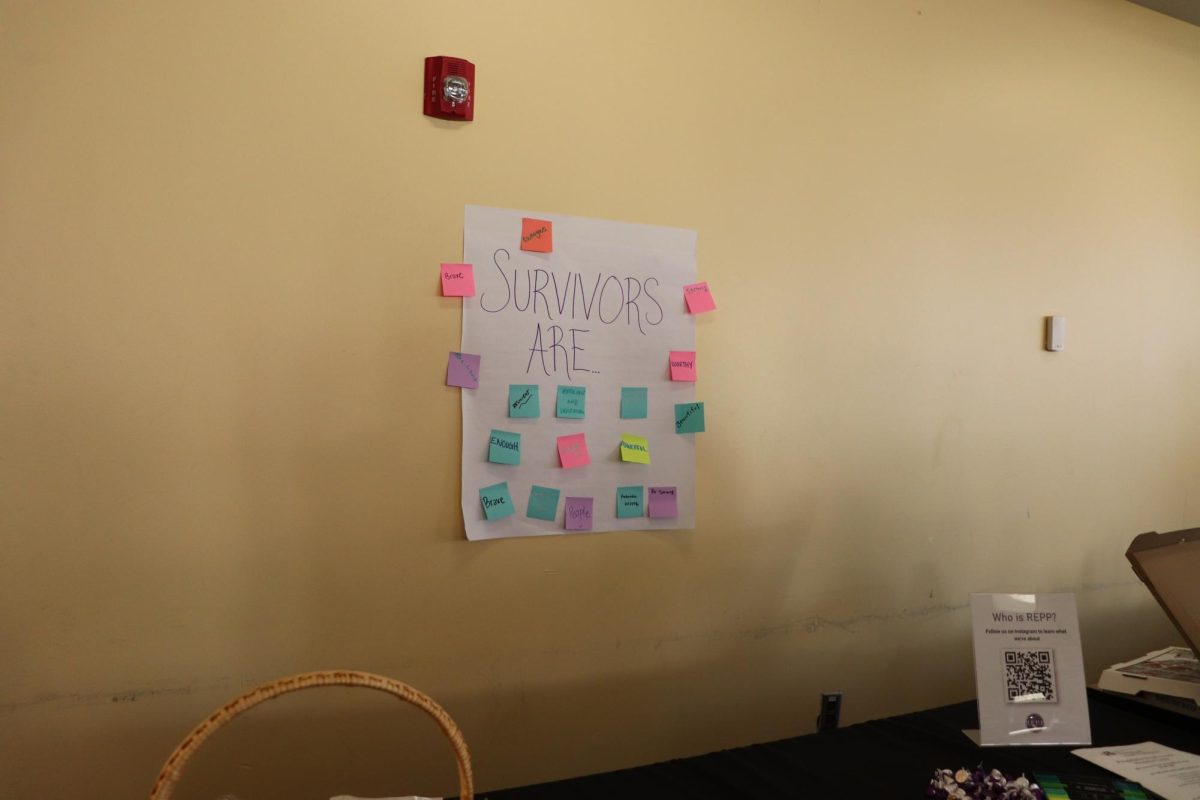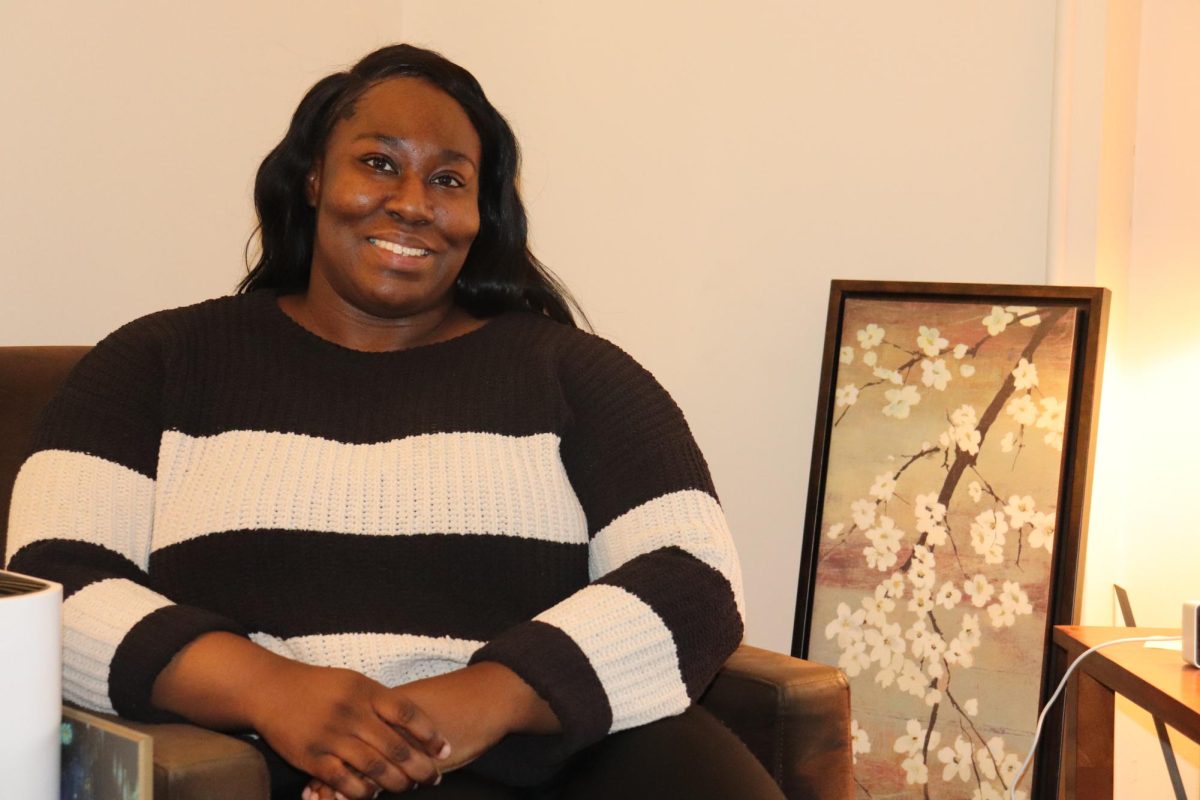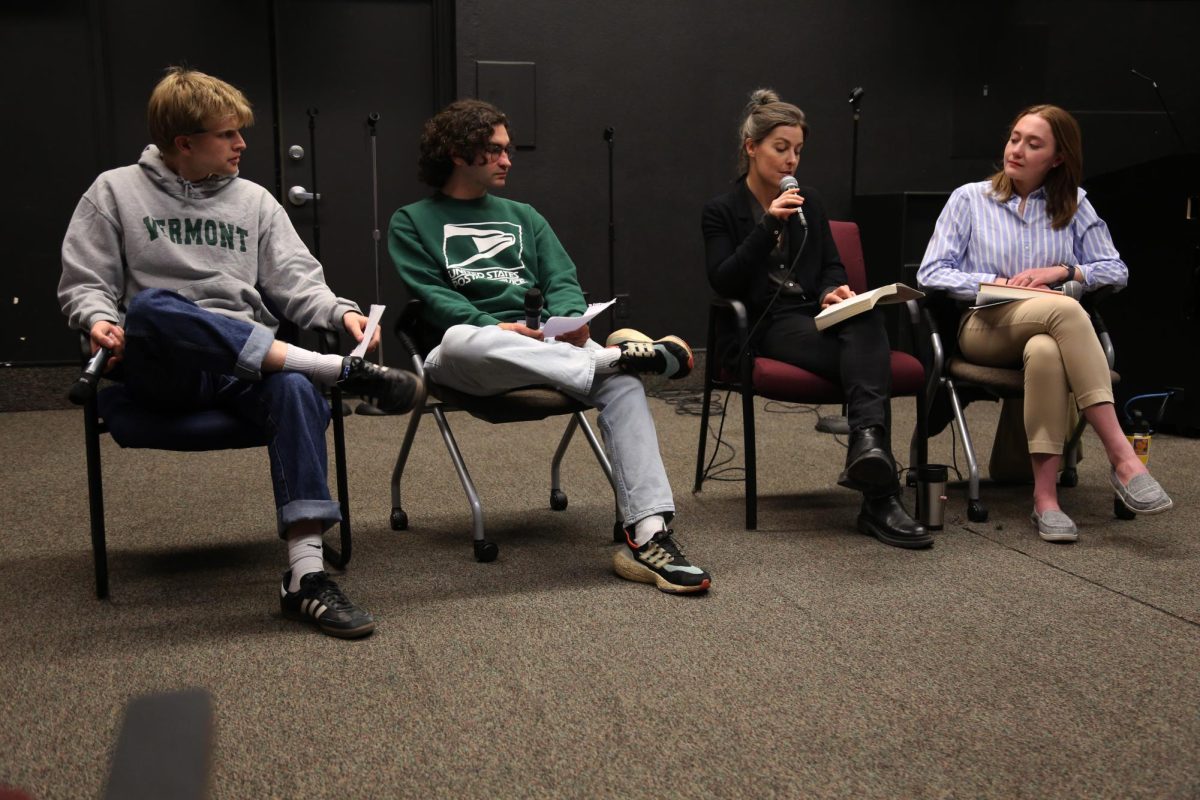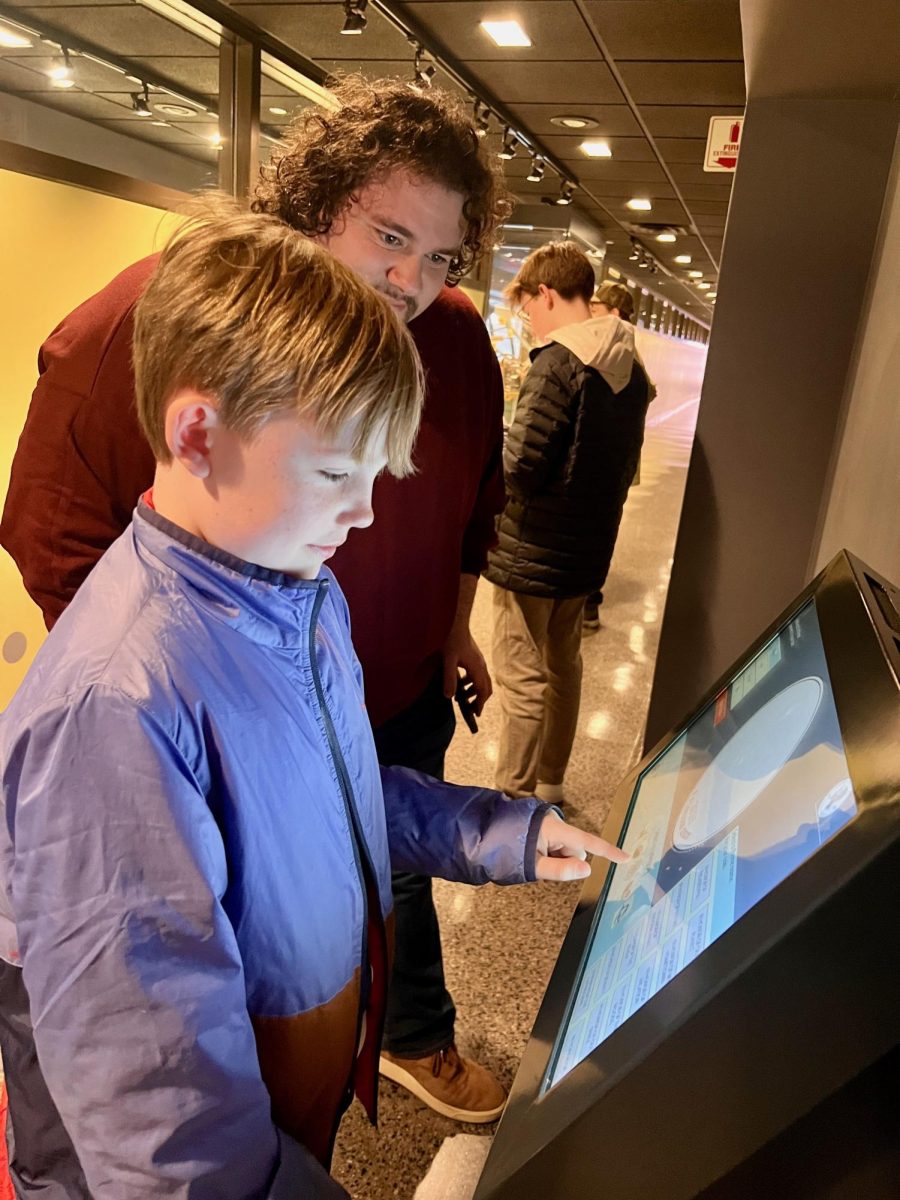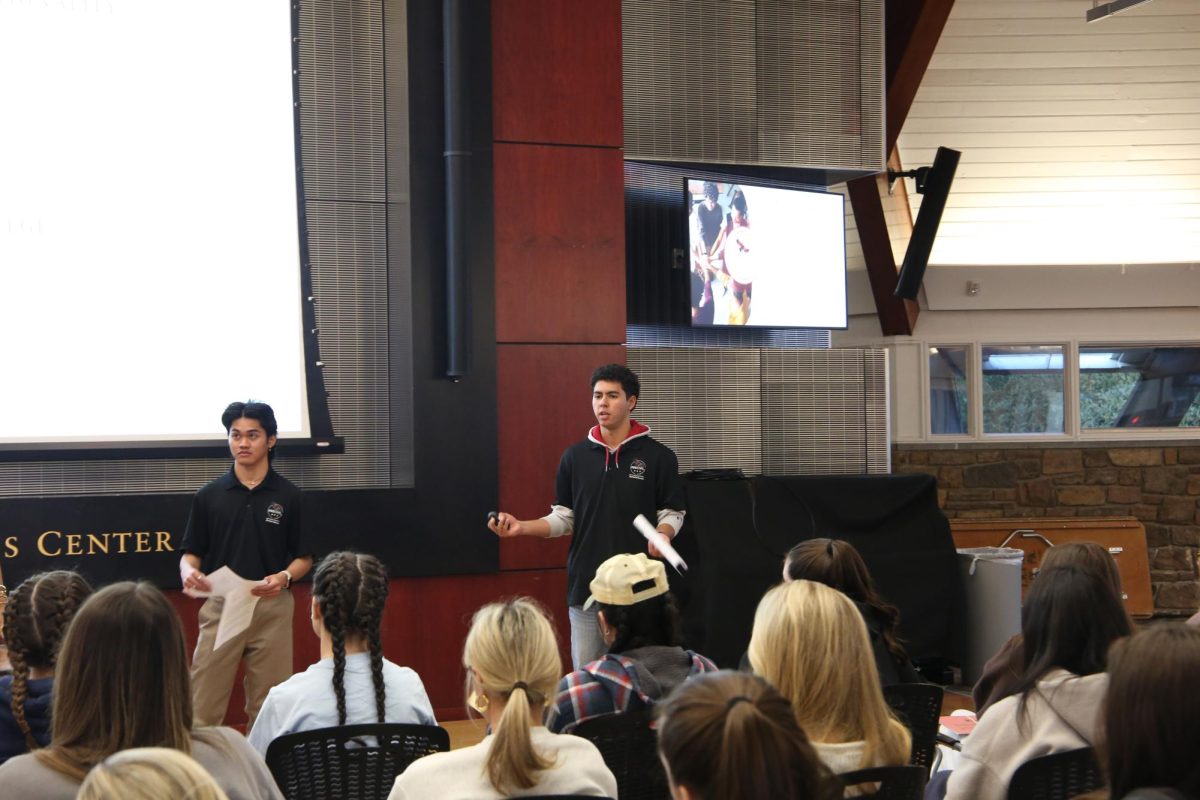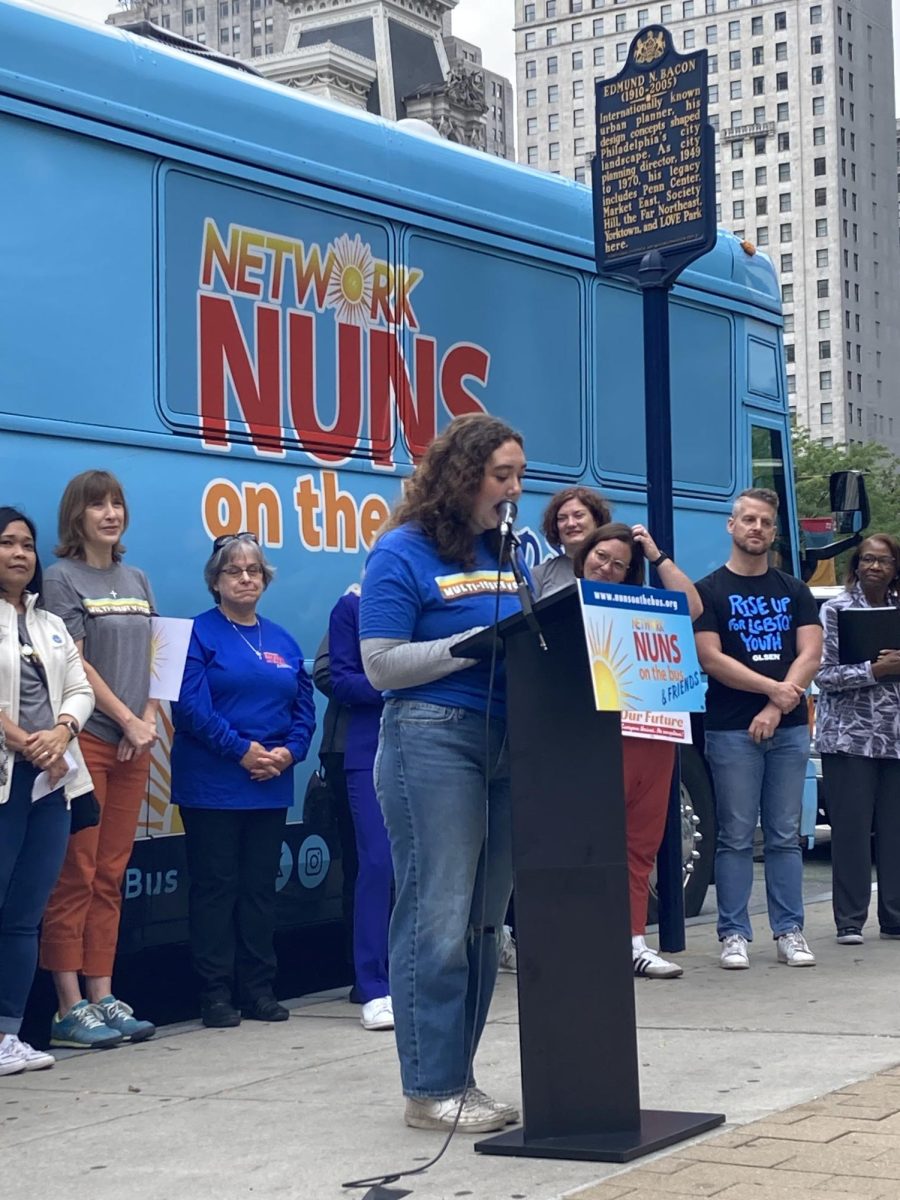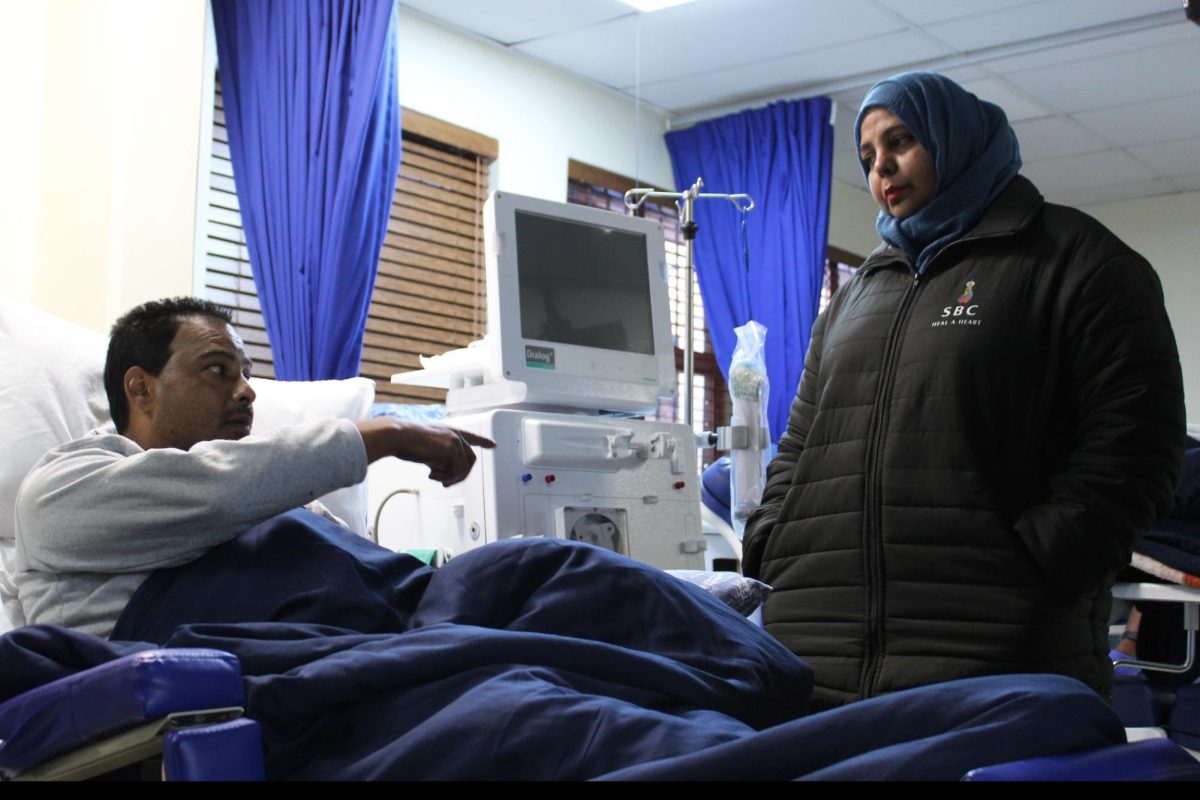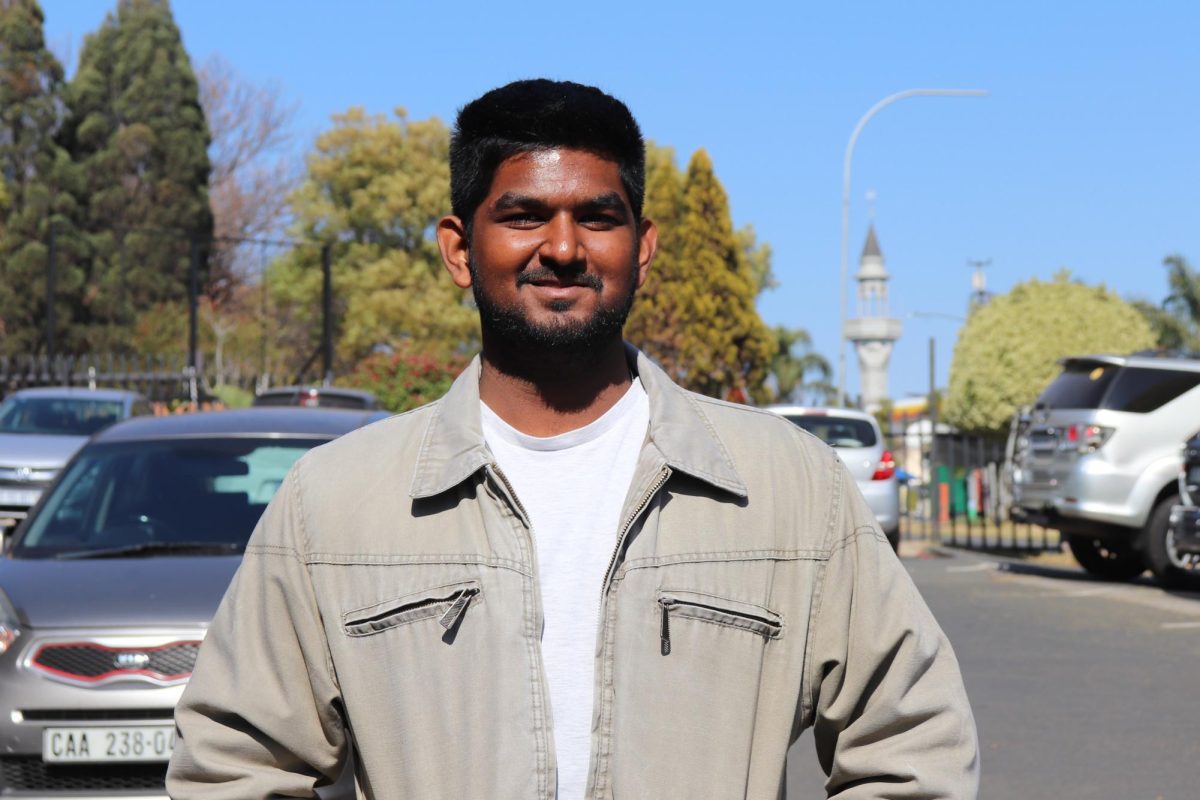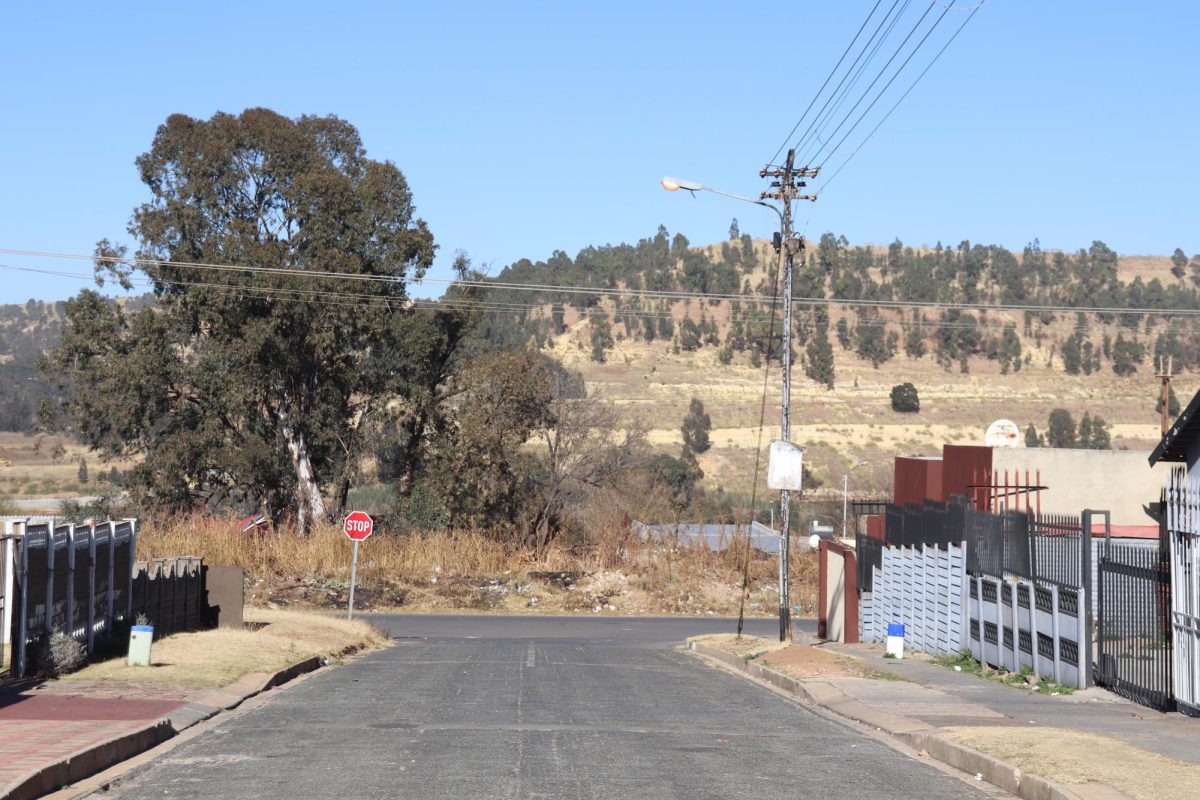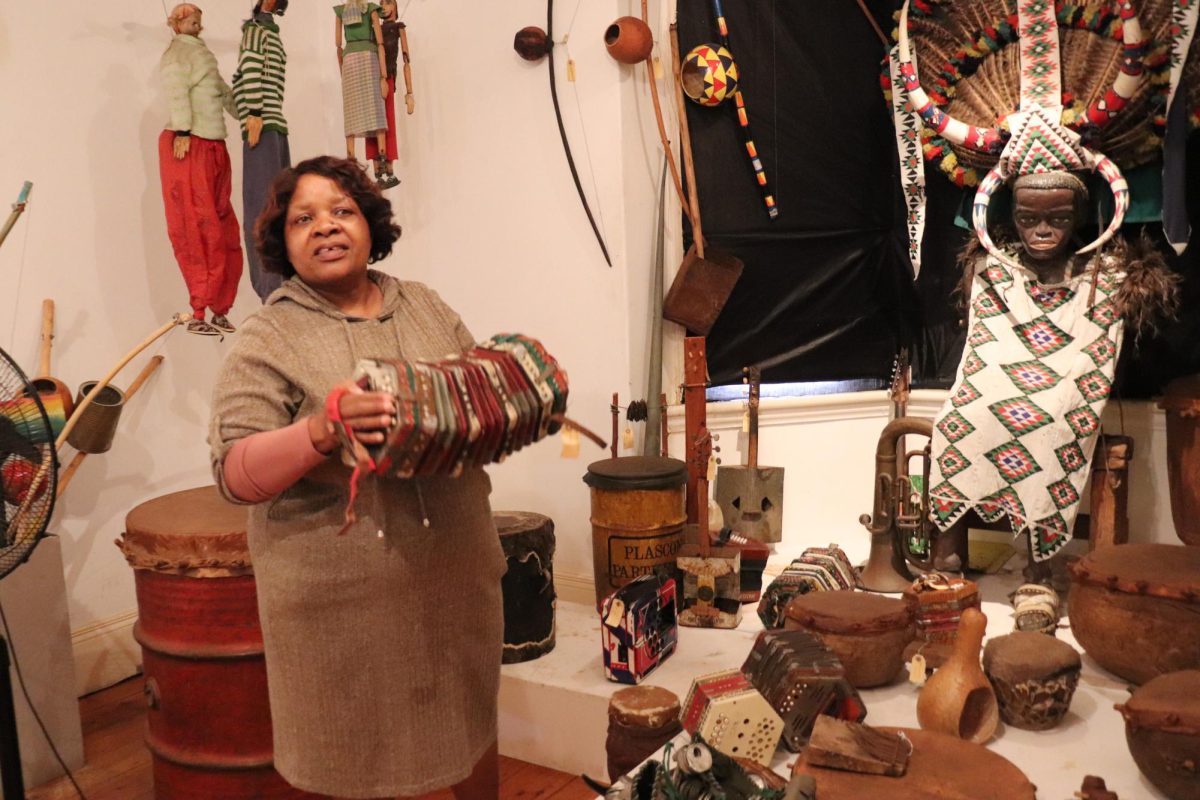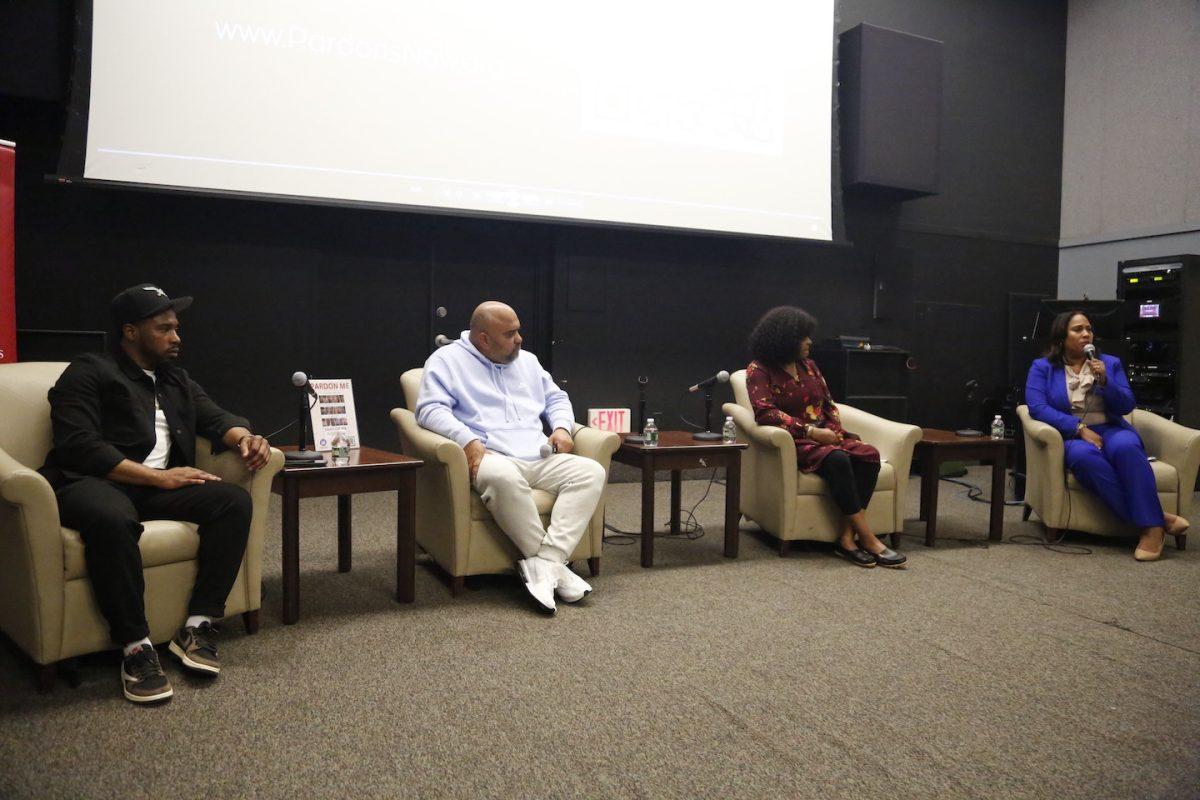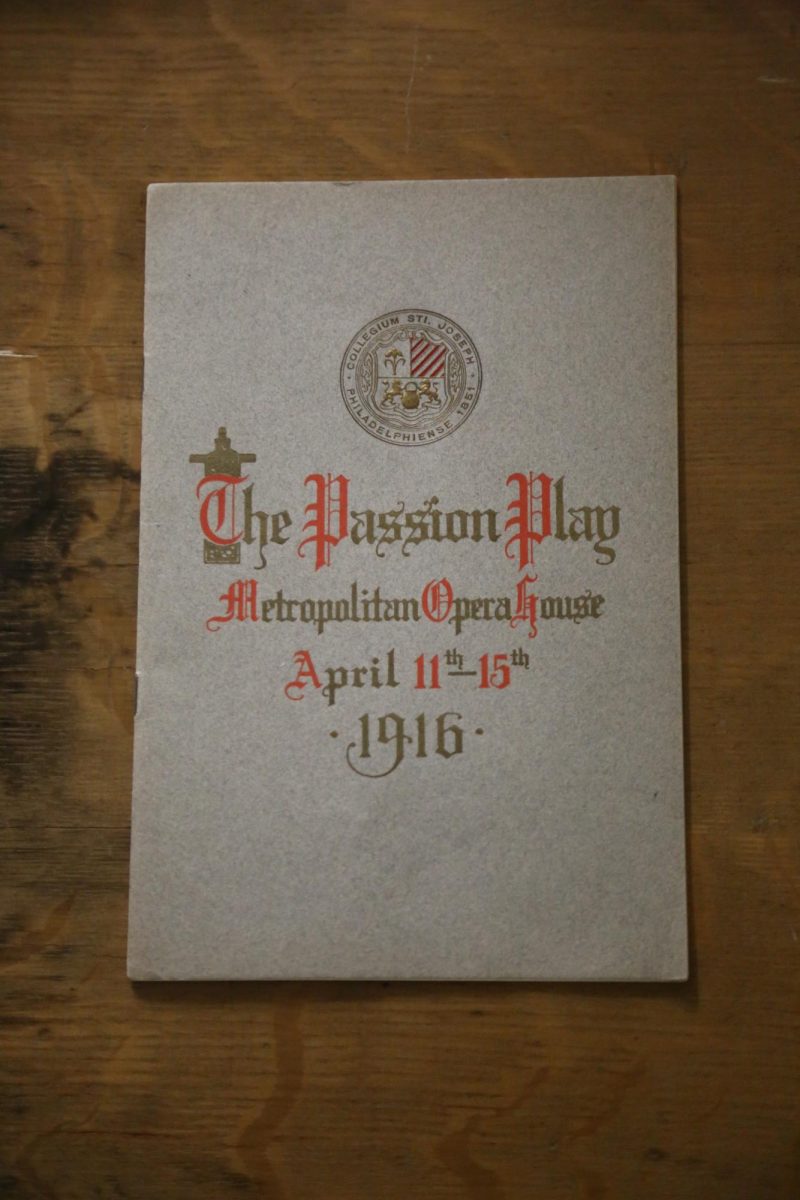Seven St. Joe’s departments sponsored a screening of “Pardon Me” in Campion Student Center’s Forum Theatre Nov. 9. The 2023 short film explores the advantages and challenges of applying for a pardon, a process that erases all records of a past crime and allows people to approach new opportunities with a clean slate.
This event served as the beginning of the “Second Chances: Redeeming the Past, Reframing the Future” series, a collection of three events on the Hawk Hill campus focused on the flaws of the American criminal justice system and the realities of the lives of those impacted by it.
The film was directed and produced by Shuja Moore, founder and current president of the community empowerment group Do Moore Good. The film highlights the stories of two Philadelphia-area residents, Evan Figueroa-Vargas and Antoinette Griffin, who have successfully received pardons.
“What we’re talking about is really a new conversation around giving someone a second chance,” Moore said.
Following the screening, Moore, Figueroa-Vargas, Griffin and former Philadelphia Chief Defender, Keir Bradford-Grey, reviewed the content of the film and took questions from the audience.
The conversation honed in on the difficulty of receiving a pardon as time, money and potential for rejection all provide significant barriers to people seeking to better their lives and pursue new opportunities.
“In the film, it states that I applied for a pardon in 2019, which is true, but before I actually submitted, such as [Moore] did, the pardon application itself, I started to obtain all my paperwork, all my necessary documents, in the middle of 2017,” Figueroa-Vargas said.
Figueroa-Vargas explained how the process of getting the paperwork for the application comes with its own set of hardships.
“You’d be surprised how long it takes for you to get your hands on this paperwork, how much money it costs for you to get this paperwork and if you have any court costs and fines, you have to pay all that stuff off,” Figueroa-Vargas said.
Both the audience and the panel also acknowledged the educational potential of the film for those currently incarcerated or recently released.
“A pardon is important because it lets you restore your rights, your citizen’s rights,” Griffin said. “Without that you’re not a full citizen…it’s something that humanizes us because I think a lot of criminals don’t feel as though they’re humanized. And we need to let as many people know as possible, people in your family, people in your circle, that they can get a pardon.”
Moore said he is actively looking for a means to screen or distribute the film to current inmates, and the film’s website offers information to anyone interested in getting involved in the cause or learning more about the film.
“The film was one thing,” Moore said. “The second thing is we hear about this issue, you see this solution, [but] what do we do now? That’s what this initiative really is about. How can we spread awareness about pardons and why pardons are necessary?”
A screening of “No Way Home” will be the next and final event in the “Second Chances” series, and will take place from 6 to 7:30 p.m. Nov. 28 in the Teletorium in Mandeville Hall.


